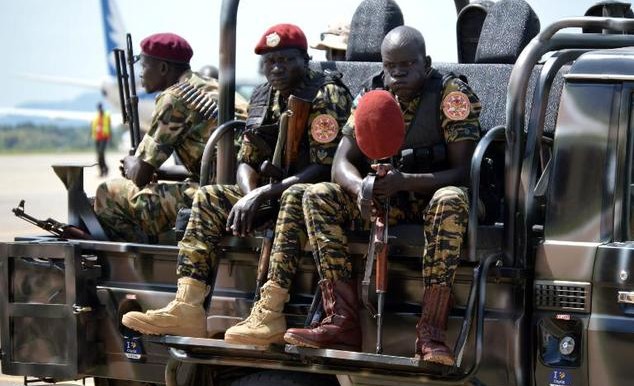Three men from the Nuer ethnicity who hail from Unity State were snatched, bundled in a vehicle, and driven away by soldiers dressed in the uniform of the Tiger Division, which protects the president at 5 p.m. on Tuesday from a tea place in Juba’s Hai Thoura suburb, according to eyewitnesses and relatives.
The trio has been identified as Gatdiet Peter, Massap Koang, and Gatjang Dogor, with ages ranging from 35 to 40.
According to their relative, Michael Thak Nguany Jal, they heard rumours on Wednesday morning that the three men were being held at the SSPDF’s Giada Barracks south of Juba and went there but received no assistance.
“They were taking tea when they were picked up by armed men from near Juba University. We got information this (Wednesday) morning that they are being held at the Tiger Barracks in Giada. We went there, but up to now we have not got any details or assistance,” he explained. “They are civilians and not involved in politics, so we do not know why they were arrested. We are now following up with the Tiger Unit to find out why they were arrested. We have been told to wait and that they will give us information about their status later. We have not yet reported to the police.”
“As a family, we want our people unconditionally released because they did not commit any crime,” Thak added.
Bichiok Gattou, another relative of the detained men, told Radio Tamazuj that one of the detained, Gadiet, is a student in The Netherlands and holds citizenship there, and that he came to Juba about 11 days ago to get married.
“There is no reason for their arrest, for example, Gadiet came 11 days ago for marriage and has no problems with people here. Maybe they had a misunderstanding with somebody while out there,” he said. “We just want them to be released because there is no clear reason for their detention, as they are not involved in illegalities and they are all university students.”
Efforts to reach military officials for comment were unsuccessful.
South Sudan’s constitution requires detainees to be brought before a judge within 24 hours of arrest. In practice, however, this legal protection is rarely observed.




